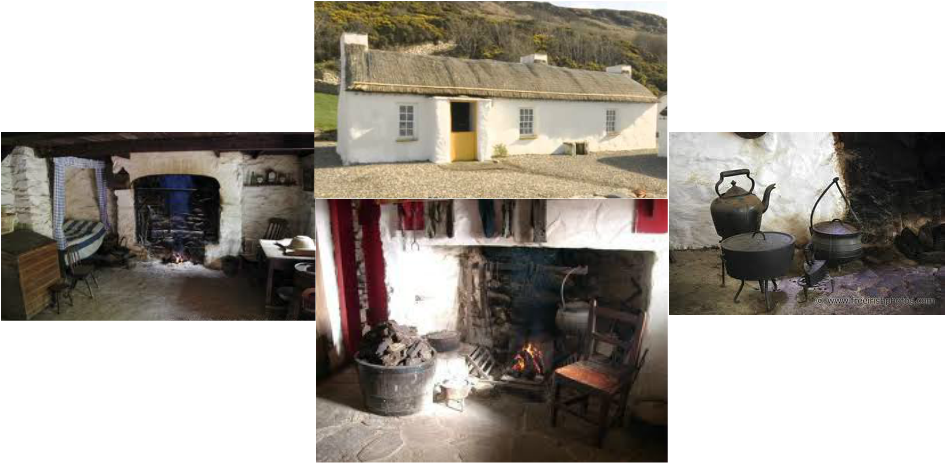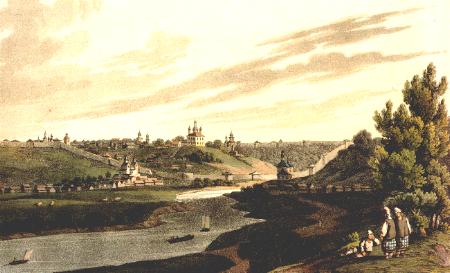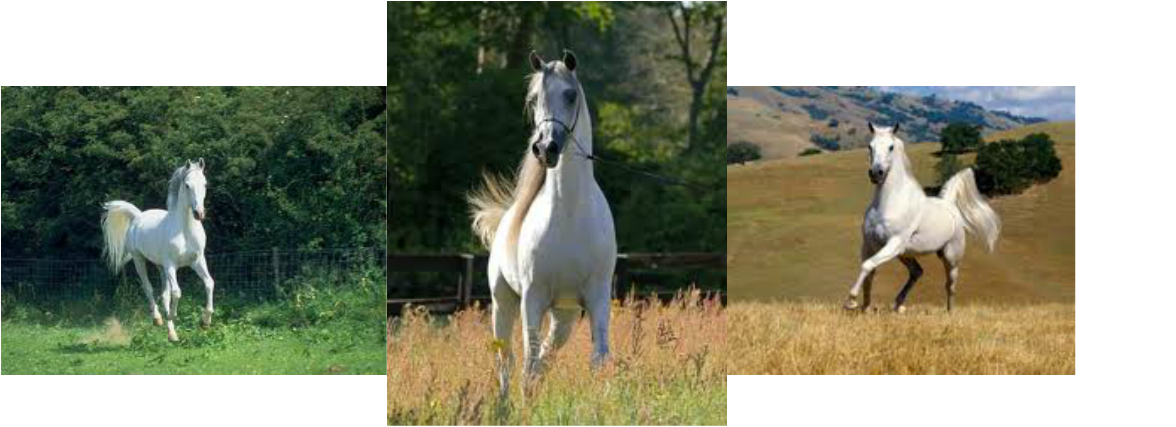- Home
- Site Index
- About Me
-
My Books
- Book List & Themes
- Strictly for Adults Novels >
-
Tales from Portlaw
>
- No Need to Look for Love
- 'The Love Quartet' >
-
The Priest's Calling Card
>
- Chapter One - The Irish Custom
- Chapter Two - Patrick Duffy's Family Background
- Chapter Three - Patrick Duffy Junior's Vocation to Priesthood
- Chapter Four - The first years of the priesthood
- Chapter Five - Father Patrick Duffy in Seattle
- Chapter Six - Father Patrick Duffy, Portlaw Priest
- Chapter Seven - Patrick Duffy Priest Power
- Chapter Eight - Patrick Duffy Groundless Gossip
- Chapter Nine - Monsignor Duffy of Portlaw
- Chapter Ten - The Portlaw Inheritance of Patrick Duffy
- Bigger and Better >
- The Oldest Woman in the World >
-
Sean and Sarah
>
- Chapter 1 - 'Return of the Prodigal Son'
- Chapter 2 - 'The early years of sweet innocence in Portlaw'
- Chapter 3 - 'The Separation'
- Chapter 4 - 'Separation and Betrayal'
- Chapter 5 - 'Portlaw to Manchester'
- Chapter 6 - 'Salford Choices'
- Chapter 7 - 'Life inside Prison'
- Chapter 8 - 'The Aylesbury Pilgrimage'
- Chapter 9 - Sean's interest in stone masonary'
- Chapter 10 - 'Sean's and Tony's Partnership'
- Chapter 11 - 'Return of the Prodigal Son'
- The Alternative Christmas Party >
-
The Life of Liam Lafferty
>
- Chapter One: ' Liam Lafferty is born'
- Chapter Two : 'The Baptism of Liam Lafferty'
- Chapter Three: 'The early years of Liam Lafferty'
- Chapter Four : Early Manhood
- Chapter Five : Ned's Secret Past
- Chapter Six : Courtship and Marriage
- Chapter Seven : Liam and Trish marry
- Chapter Eight : Farley meets Ned
- Chapter Nine : 'Ned comes clean to Farley'
- Chapter Ten : Tragedy hits the family
- Chapter Eleven : The future is brighter
-
The life and times of Joe Walsh
>
- Chapter One : 'The marriage of Margaret Mawd and Thomas Walsh’
- Chapter Two 'The birth of Joe Walsh'
- Chapter Three 'Marriage breakup and betrayal'
- Chapter Four: ' The Walsh family breakup'
- Chapter Five : ' Liverpool Lodgings'
- Chapter Six: ' Settled times are established and tested'
- Chapter Seven : 'Haworth is heaven is a place on earth'
- Chapter Eight: 'Coming out'
- Chapter Nine: Portlaw revenge
- Chapter Ten: ' The murder trial of Paddy Groggy'
- Chapter Eleven: 'New beginnings'
-
The Woman Who Hated Christmas
>
- Chapter One: 'The Christmas Enigma'
- Chapter Two: ' The Breakup of Beth's Family''
- Chapter Three: From Teenager to Adulthood.'
- Chapter Four: 'The Mills of West Yorkshire.'
- Chapter Five: 'Harrison Garner Showdown.'
- Chapter Six : 'The Christmas Dance'
- Chapter Seven : 'The ballot for Shop Steward.'
- Chapter Eight: ' Leaving the Mill'
- Chapter Ten: ' Beth buries her Ghosts'
- Chapter Eleven: Beth and Dermot start off married life in Galway.
- Chapter Twelve: The Twin Tragedy of Christmas, 1992.'
- Chapter Thirteen: 'The Christmas star returns'
- Chapter Fourteen: ' Beth's future in Portlaw'
-
The Last Dance
>
- Chapter One - ‘Nancy Swales becomes the Widow Swales’
- Chapter Two ‘The secret night life of Widow Swales’
- Chapter Three ‘Meeting Richard again’
- Chapter Four ‘Clancy’s Ballroom: March 1961’
- Chapter Five ‘The All Ireland Dancing Rounds’
- Chapter Six ‘James Mountford’
- Chapter Seven ‘The All Ireland Ballroom Latin American Dance Final.’
- Chapter Eight ‘The Final Arrives’
- Chapter Nine: 'Beth in Manchester.'
- 'Two Sisters' >
- Fourteen Days >
-
‘The Postman Always Knocks Twice’
>
- Author's Foreword
- Contents
- Chapter One
- Chapter Two
- Chapter Three
- Chapter Four
- Chapter Five
- Chapter Six
- Chapter Seven
- Chapter Eight
- Chapter Nine
- Chapter Ten
- Chapter Eleven
- Chapter Twelve
- Chapter Thirteen
- Chapter Fourteen
- Chapter Fifteen
- Chapter Sixteen
- Chapter Seventeen
- Chapter Eighteen
- Chapter Nineteen
- Chapter Twenty
- Chapter Twenty-One
- Chapter Twenty-Two
-
Celebrity Contacts
-
Thoughts and Musings
- Bereavement >
- Nature >
-
Bill's Personal Development
>
- What I'd like to be remembered for
- Second Chances
- Roots
- Holidays of Old
- Memorable Moments of Mine
- Cleckheaton Consecration
- Canadian Loves
- Mum's Wisdom
- 'Early life at my Grandparents'
- Family Holidays
- 'Mother /Child Bond'
- Childhood Pain
- The Death of Lady
- 'Soldiering On'
- 'Romantic Holidays'
- 'On the roof'
- Always wear clean shoes
- 'Family Tree'
- The importance of poise
- 'Growing up with grandparents'
- Love & Romance >
- Christian Thoughts, Acts and Words >
- My Wedding
- My Funeral
- Audio Downloads
- My Singing Videos
- Bill's Blog
- Contact Me
Chapter Five
'Discoveries of Widow Friggs' Past'
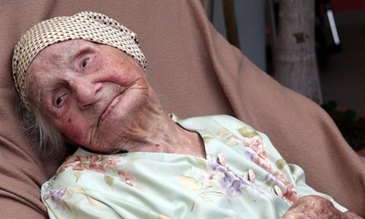
Over the following week, Ned, Sean and Sheila arranged to have the widow prepared for burial. Before Sean closed the widow's eyes and covered them with the customary two pennies, he and Sheila remarked how peaceful the old lady looked; more like someone resting than having departed. After the body had been respectfully arranged, Sean and Sheila agreed to tidy through the house over a three-day period while Ned did his daily work looking after the horses, which couldn't be ignored or left unattended.
"Tidy up and clean the old place up a bit, if you will," Ned asked Sean and Sheila. "She'd hate the undertaker to see her place a mess as he carried her coffin away. If you go through all her papers and possessions, I'd be grateful. Just leave things in an orderly manner and easy to get to, if needed," Ned asked the couple.
"Tidy up and clean the old place up a bit, if you will," Ned asked Sean and Sheila. "She'd hate the undertaker to see her place a mess as he carried her coffin away. If you go through all her papers and possessions, I'd be grateful. Just leave things in an orderly manner and easy to get to, if needed," Ned asked the couple.
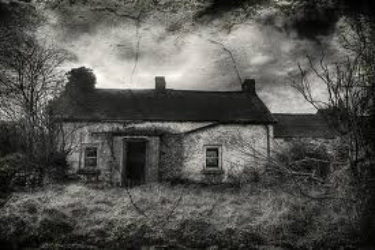
Sean and Sheila not only tidied up inside the cottage, but they managed to make it as presentable and as homely as it would have undoubtedly looked when the widow first lived there and was able to keep on top of everything. They may not have been able to change the outside of the old cottage and make it look as it once had, but inside was washed down, swept clean and dusted to the satisfaction of any proud Portlaw housewife. During their tidying up, they found an old 78 record inside the old gramophone that had been inscribed 'To Alena with fond memories'.
"Isn't it strange," Sheila observed as she looked around the inside of the cottage once they had cleaned up and tidied things. "It looks ready to live in when you are inside and ready to fall down when you view it from the outside."
"Isn't it strange," Sheila observed as she looked around the inside of the cottage once they had cleaned up and tidied things. "It looks ready to live in when you are inside and ready to fall down when you view it from the outside."

Sean stayed in the widow's cottage all of the three days and nights after the widow had been found dead, although Sheila stayed at Ned's place as it enabled her to check his horses if required. While lonely at the cottage on his own during the night, the view from the back window was one of haunting beauty. He was also to use a great deal of this time using his investigative skills once more as he tried to build up as accurate an image as he could of the Widow Friggs.

Once he had begun to read through the widow's documents and letters, examine photographs and look at a number of strange artefacts she owned, Sean slowly began to piece together all of the information on her life that the cottage held within. By the end of three days and nights in the cottage, he felt that he knew the Widow Friggs, probably more than anyone apart from her late husband had ever known her. Sean was simply unable to put this historical image of her that he was building up away until he had read every document and had seen everything there was to see inside the cottage.
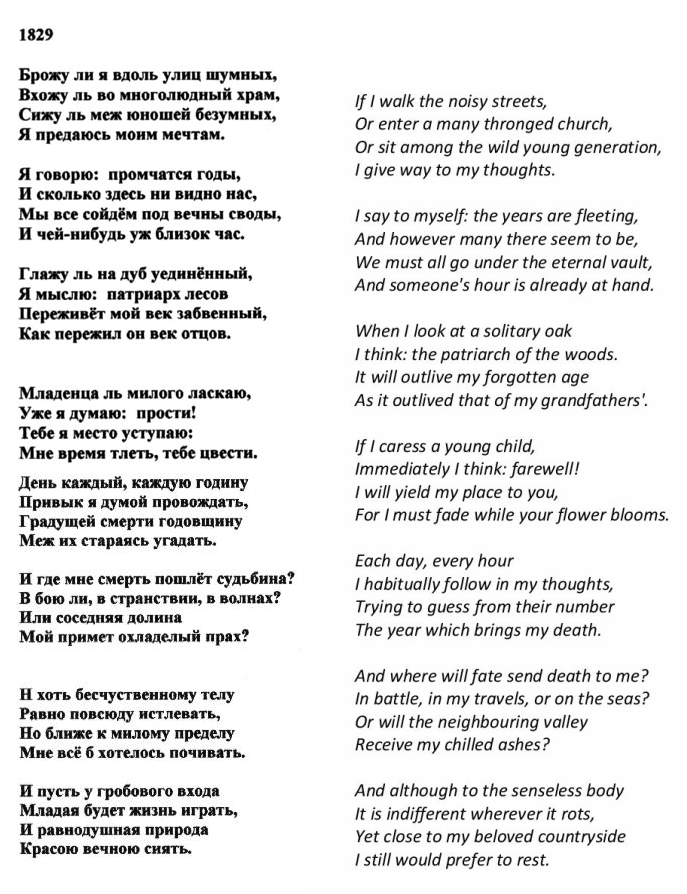
It turned out that Widow Friggs was indeed the mysterious Lady Harrowby-Friggs that his earlier search had drawn a blank on. Not only was she the said lady, but.........she was the sister of Erop Borowski; the older sister by nine years, who at the time of her death was 132 years old, making her the oldest person in the world for at least the last decade of her life.
She was a reader of the great Russian poet, Alexander Pushkin and had even translated one of his poems from a Russian book into English after the Crimean War years and during her marriage years to Lord Harrowby-Friggs.
Sean could sense that she had been a most intelligent and widely cultured woman, whom despite her marriage to a British aristocrat, always seemed to have regretted being unable to return to her native Russia after 1856.
She was a reader of the great Russian poet, Alexander Pushkin and had even translated one of his poems from a Russian book into English after the Crimean War years and during her marriage years to Lord Harrowby-Friggs.
Sean could sense that she had been a most intelligent and widely cultured woman, whom despite her marriage to a British aristocrat, always seemed to have regretted being unable to return to her native Russia after 1856.
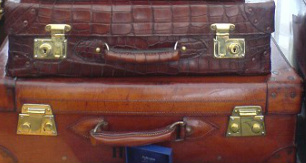
Sean could hardly believe his eyes as he began to piece together the missing years in this old woman's life. He was overjoyed to find that she had kept a diary since the age of seven years, amounting to 120 volumes, that were written in crayon, pencil and ink. All of these books were kept inside two old brown Victorian suitcases, which the widow kept under her bed. Each book was slender as were the daily entries that usually contained a few words like, 'Went here for a look' or 'Afternoon tea, late as usual!' The penultimate entry of the diary simply said: "March 22, 1894: Lord Cyril died today without issue. Won't stay here any longer than I need to. Will leave after a respectable interval. May go back to Naples before I grow too old to travel." There seemed to be no further entries until Sean found the very last entry of all, dated March 15th, 1895. The widow had written, "Seen a singer today who is destined for greatness. Oh how I wish that Cyril could have heard that magnificent voice of Enrico Caruso."
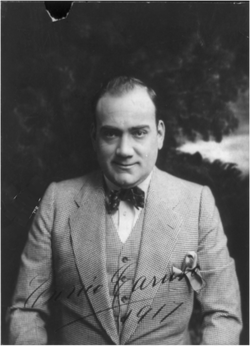
Sean decided to play the old gramophone, which he'd dusted down and after winding it up, he placed the old 78 record on its turntable. The old record was by the great opera singer Enrico Caruso in 1916 of 'O Sole Mio'. Inside the cabinet, he found a signed photograph of Caruso. It was a photograph from 1911, but was signed by him in 1917.
In later reference to other documentation, Sean's findings revealed that one year following her late husband's death, the widow had made her last European journey. It was during March 1895 when she was seventy years of age. She visited Naples, having travelled there by first class passage on a luxury liner. She had gone there to help manage her process of bereavement. Having recently lost the only man in her life, she knew that in Naples, she could recall her honeymoon period there and planned to revisit a few of the places where she and Lord Harrowby-Friggs had shared tender moments and had spoken words to each other that every person who had ever been in love would understand and which every spinster, confirmed bachelor or spiteful spouse would call tosh and twaddle.
While in Naples, the widow, who loved opera, went to see a young Italian at the Teatro Nuovo. This performance was the singer's professional stage debut. He was only a mere twenty two years of age, and yet his reputation as being a voice of the future was fast growing in Italy. The production was by an amateur composer (L' Amico Francesco by Domenico Morelli), but the voice of the tenor was so magical that the 70 year-old widow went back stage afterwards and briefly told the young man that his singing was 'magnifico'.
In later reference to other documentation, Sean's findings revealed that one year following her late husband's death, the widow had made her last European journey. It was during March 1895 when she was seventy years of age. She visited Naples, having travelled there by first class passage on a luxury liner. She had gone there to help manage her process of bereavement. Having recently lost the only man in her life, she knew that in Naples, she could recall her honeymoon period there and planned to revisit a few of the places where she and Lord Harrowby-Friggs had shared tender moments and had spoken words to each other that every person who had ever been in love would understand and which every spinster, confirmed bachelor or spiteful spouse would call tosh and twaddle.
While in Naples, the widow, who loved opera, went to see a young Italian at the Teatro Nuovo. This performance was the singer's professional stage debut. He was only a mere twenty two years of age, and yet his reputation as being a voice of the future was fast growing in Italy. The production was by an amateur composer (L' Amico Francesco by Domenico Morelli), but the voice of the tenor was so magical that the 70 year-old widow went back stage afterwards and briefly told the young man that his singing was 'magnifico'.
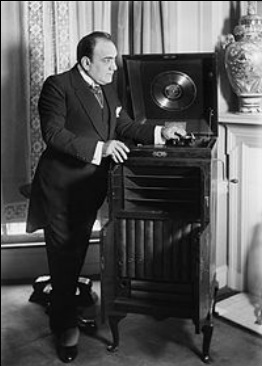
Sean also learned from the widow's letters that he was the only person with whom she corresponded after she took up residency at her Portlaw homestead, apart from her neighbour, Ned Hackett. The young tenor had never forgotten the praise that Lady Harrowby-Friggs had heaped on him after his first nervous performance at the tender age of twenty two years. The couple were to maintain occasional contact and in 1917, Caruso sent her a 78 record of his hit, 'O Sole Mio'.
When they had met in Naples in 1895, the aging widow had indicated that whilst it pained her to revisit Naples, she sensed that 'it was now or never' or she would not have come back. The young singer never forgot these words of hers and sent her his rendition of a beautiful song, which had been written in 1898, three years after they'd first met. The song's title, 'O Sole Mio', literally translates as 'It's now or never'. Enrico Caruso recorded the song in 1917 and sent it to the widow, stating in his brief letter that whenever he sang it that he had sang it with her and her late husband in mind. Four years later, the great Caruso would be dead, aged a mere forty eight years. The widow was then aged ninety two years and had another forty years yet to live.
Sean wound up the old gramophone and played Caruso singing 'O Sole Mio'.
When they had met in Naples in 1895, the aging widow had indicated that whilst it pained her to revisit Naples, she sensed that 'it was now or never' or she would not have come back. The young singer never forgot these words of hers and sent her his rendition of a beautiful song, which had been written in 1898, three years after they'd first met. The song's title, 'O Sole Mio', literally translates as 'It's now or never'. Enrico Caruso recorded the song in 1917 and sent it to the widow, stating in his brief letter that whenever he sang it that he had sang it with her and her late husband in mind. Four years later, the great Caruso would be dead, aged a mere forty eight years. The widow was then aged ninety two years and had another forty years yet to live.
Sean wound up the old gramophone and played Caruso singing 'O Sole Mio'.
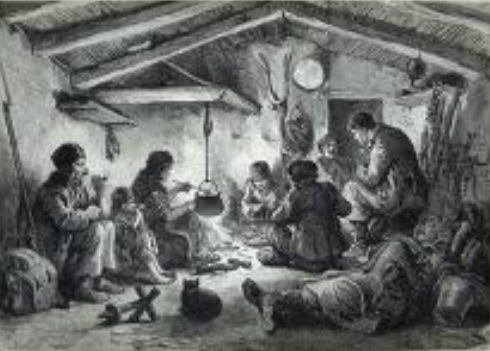
The quantity and quality of finds that Sean made during this three-day period simply astounded him. This old woman who had lived in Portlaw longer than anyone could remember and who had lived a life of frugality and had never been known to spend her money, was more truly famous and with a line of past associates and friends of world fame that would come out tops in any edition of the 'Guinness Book of Records'. Sean wondered what it had been which had led to the widow living so simply when there seemed to be no reason for her to have done so?
Sean then came across an old pencil sketch in a biscuit tin which was of the widow's humble home as a child. It would seem that it was common for more than one family to live in any single dwelling when the widow was a child growing up in Russia. Sean wondered if, after tasting forty years of unbridled privileged living as Lady Harrowby-Friggs, the widow needed to return to a simpler life that brought her closer to her roots once more before she died. Or did she fear ultimate detection of those roots by her aristocratic friends if she stayed around after Lord Harrowby-Friggs was no longer on hand to protect her? Sean surmised that to live out the remainder of her life as a simple widow in a humble cottage was all that she now required. He also surmised that the adoption of a part of her late husband's double-barrelled surname would be enough to provide her with a new identity that served its purpose without disowning Lord Harrowby-Friggs in the process.
Sean then came across an old pencil sketch in a biscuit tin which was of the widow's humble home as a child. It would seem that it was common for more than one family to live in any single dwelling when the widow was a child growing up in Russia. Sean wondered if, after tasting forty years of unbridled privileged living as Lady Harrowby-Friggs, the widow needed to return to a simpler life that brought her closer to her roots once more before she died. Or did she fear ultimate detection of those roots by her aristocratic friends if she stayed around after Lord Harrowby-Friggs was no longer on hand to protect her? Sean surmised that to live out the remainder of her life as a simple widow in a humble cottage was all that she now required. He also surmised that the adoption of a part of her late husband's double-barrelled surname would be enough to provide her with a new identity that served its purpose without disowning Lord Harrowby-Friggs in the process.
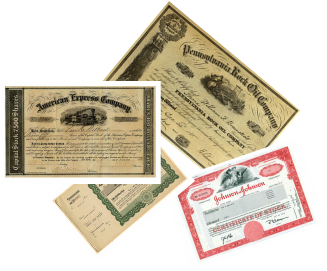
The 63-year-gap between Lord Cyril Harrowby-Frigg's death and the death of his wife, left Sean searching through everything that might throw up more pieces of the incomplete jigsaw. There was a batch of stocks and shares issues, which had been randomly spread inside one of the widow's chest of drawers as though they held little value to her. It later transpired that they had been passed on to her as part of her husband's estate and that she had never bothered cashing them in. Sean was astounded to see their value to have been over £4,000 when they'd been taken out between 1884-1890; before the turn of the century, almost seventy years earlier!
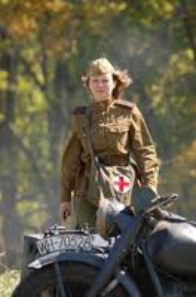
He learnt from the contents of a letter from one of her friends and a former employer, that Alena Borowski had served as a nurse during the Crimean War for both the Russians and the English! She entered the war in its early stages, and was only a few women behind the young Dashu Sevastopolskaya (Darja Lavrentjevna Mikhailova), the first female volunteer nurse to join the Russian Army.
Unlike Dashu however, Alena wanted to nurse any injured soldier she came across, whatever their nationality! During a fearsome skirmish between the Russian and the English Army near Scutari in the January of 1856, Nurse Alena Borowski found herself cut off from the Russian platoon she had been nursing the casualties of and, as the English soldiers advanced, she exchanged her Russian uniform for one off a dead English nurse so that she might continue to pursue her vocation.
Unlike Dashu however, Alena wanted to nurse any injured soldier she came across, whatever their nationality! During a fearsome skirmish between the Russian and the English Army near Scutari in the January of 1856, Nurse Alena Borowski found herself cut off from the Russian platoon she had been nursing the casualties of and, as the English soldiers advanced, she exchanged her Russian uniform for one off a dead English nurse so that she might continue to pursue her vocation.
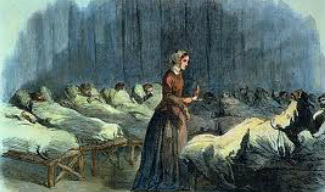
The battle raged on and she found herself hours later, being ushered towards a tent of wounded and dying soldiers. They were English soldiers. Although she could not disguise her Eastern accent, she was able to speak both English and French well enough to pass as European. Alena simply did her human duty to preserve life wherever she could and as the English came back under attack and all those who could manage to leave did so, she stayed behind with her medical charges to face what could only have seemed like certain death to them at the time. Had the Russian Army caught her, they would have instantly branded her a traitor and deserter and executed her there and then for having given succour and comfort to the enemy soldier.
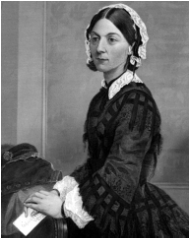
Sean read a letter written to Alena from the great woman herself, Florence Nightingale. After hearing of this heroic nurse with the Russian name who had cared for the English wounded and dying at severe risk to her own life and safety, Florence Nightingale felt duty bound to write and applaud her war efforts. Sean was to discover that this was not the only contact that Florence was to have with Alena and that, along with the royal personage of another, Alena was able to fit into and be fully accepted by English society until the turn of the century.
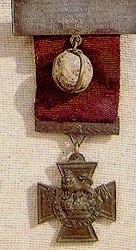
Then, as Sean looked through an old biscuit tin, which held some photographs and an old medal, his eyes nearly popped out of their sockets. The medal was dated 1857 (one hundred years earlier), and the inscription on its edge was to its recipient, Alena Borowski. It was the Victoria Cross, presented for valour above and beyond the call of duty. A brief handwritten note accompanied it that held the royal seal of the monarch herself, Victoria. The letter was headed, 'Her Majesty Queen Victoria of the United Kingdom of Great Britain and Ireland' and it was date-marked 'May of Eighteen Hundred and Fifty Seven in the year of Our Lord'.
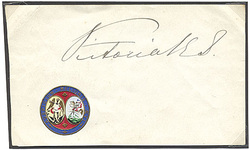
Sean knew from his years as a journalist that according to all official records and documents, no woman has ever been awarded the Victoria Cross in the long history of the medal since it was first awarded in 1857.
To have awarded it to a woman and to a woman civilian during the Crimean War who was also a Russian, was simply unthinkable. Had the country been aware of this at the time, there would have been a public outcry of protest that could have been heard across the land. Alongside the medal was a letter from Queen Victoria saying that, 'Due to the times we live in and the temperament of my people, I am unable to present to you in person the illustrious medal enclosed, which is presented for your valour serving in the nursing of my Crimean troops.' The letter was signed by the late Queen Victoria and stamped accordingly with her seal.
To have awarded it to a woman and to a woman civilian during the Crimean War who was also a Russian, was simply unthinkable. Had the country been aware of this at the time, there would have been a public outcry of protest that could have been heard across the land. Alongside the medal was a letter from Queen Victoria saying that, 'Due to the times we live in and the temperament of my people, I am unable to present to you in person the illustrious medal enclosed, which is presented for your valour serving in the nursing of my Crimean troops.' The letter was signed by the late Queen Victoria and stamped accordingly with her seal.
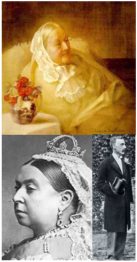
So Sean concluded that Florence Nightingale, Queen Victoria and Lord Harrowby-Friggs had effectively conspired to keep the identity and precise circumstances of the wartime Russian nurse away from the public and prying eyes of the rest of the world because of their cultural, religious and national inability to cope with the truth! It was even presumably too risky of even informing her only surviving brother, Erop, that his older sister had not died in the war, but had indeed survived and now lived the life of an aristocrat in England and Ireland. So, it would appear that this powerful threesome conspired to give Alena Borowski a new identity.
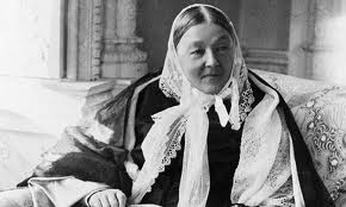
A further three items of importance was found by Sean in the old biscuit tin. There were two signed photographs sent to Alena by an aging Florence Nightingale. One was dated 1890 when Florence was seventy years of age and the second correspondence was dated in 1894 on the death of Lord Harrowby-Friggs. The widow did not correspond with Florence Nightingale again, but apparently sent an anonymous wreath to her funeral service in 1910. The third item was a document that was sealed in a manila envelope and dated some eight years earlier in 1949. It was marked, 'The Last Will and Testament of Alena Borowski, known in later life as Lady Alena Harrowby-Friggs and then later as Widow Friggs of 'Little Nook', Portlaw'.
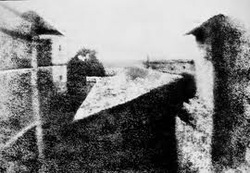
Sean then came across an image on a piece of pewter carefully folded inside a letter. The image was grainy and it took him over five minutes to establish what it was, as it had been exposed on pewter and not paper. It had the inscription on the back of it of the French photographer Joseph Nice'phore Niepce who had taken it. It was described as being a view from the window at Le Gras. The photographer named the process 'Heliography' and not 'Photography'. Sean knew from his days with the 'Guinness Book of Records' that this old piece of pewter with a scratchy image was the first photographic image ever taken! But how had it found its way here among the widow's few possessions, Sean asked himself? The widow's diaries again provided the missing jigsaw pieces to the puzzle.
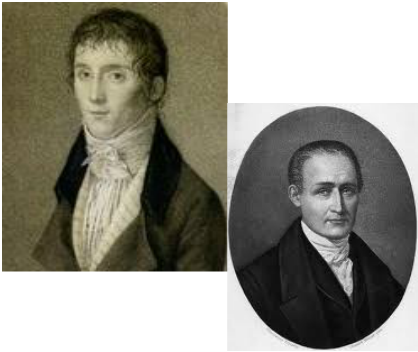
This famous man had died in 1833 when Alena was barely 8 years old. Twenty three years later, towards the end of the Crimean War, Nurse Alena Borowski had saved the life of one of the photographer's descendants; his grandson. The photographer had a son named Isidore who lived between 1805-68. Isidore had seemingly fathered a son out of wedlock in 1833 (the year of his father's death) and this son was only 20 years old when he enlisted in the French Army in 1853 to fight the Russians. He was one of the French soldiers who survived the Crimean War due to the nursing heroics of Nurse Alena Borowski.
After the war, he felt so indebted to this Crimean nurse that he sent her the one thing that meant more to him than anything else in the world; the pewter image of his grandfather's patented invention, the very first photograph ever taken! He told Alena in the correspondence that he wrote that nobody would ever seek to seize it from her, as the image on record as being 'the first' was in fact 'the second' image taken by his grandfather! The donor told Alena that the very first image had always remained in the family and now was in her hands, while the one lodged in the museum was a duplication.
"Please accept this as a token of my eternal gratitude," he wrote.
After the war, he felt so indebted to this Crimean nurse that he sent her the one thing that meant more to him than anything else in the world; the pewter image of his grandfather's patented invention, the very first photograph ever taken! He told Alena in the correspondence that he wrote that nobody would ever seek to seize it from her, as the image on record as being 'the first' was in fact 'the second' image taken by his grandfather! The donor told Alena that the very first image had always remained in the family and now was in her hands, while the one lodged in the museum was a duplication.
"Please accept this as a token of my eternal gratitude," he wrote.

After the widow's funeral, Ned was contacted by the widow's solicitors as he'd been named the sole beneficiary of her assets. It transpired that the will of the widow was indeed a valid one that had been witnessed by a solicitor and his clerk from County Waterford after it had been drawn up over twenty nine years earlier. The widow left all of her estate, money and possessions to Ned Hackett, whom she described as her one true living friend and 'the son I never had'.
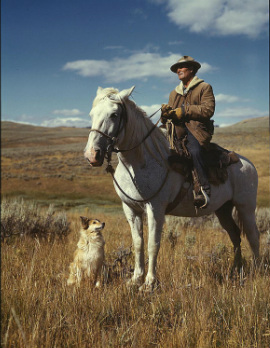
Sean showed Ned a picture of a man, a dog and a white horse . On the back of the photograph was the inscription in a bold and confident stroke that simply said 'To Ali with love Cyril, Montana xxx'
Ned said that it was Cyril that the Widow Friggs had been married to. Ned also told Sean that after her husband had died and the widow came out to live on her homestead in Portlaw, he used to help her with the horse she had been left to care for.When it contracted a desease and later had to be shot, it was him who had been asked to shoot it and then bury its carcass in the field behind the widow's cottage. Ned could still remember that terrible day vividly. It was the only time that he and the widow had seen each other cry!
"It wasn't too long after my own mother had died; a good year I think! Yes, I would have been just turned thirteen years and used to help the widow out a lot when I had no paid work to do," Ned told them.
Ned said that it was Cyril that the Widow Friggs had been married to. Ned also told Sean that after her husband had died and the widow came out to live on her homestead in Portlaw, he used to help her with the horse she had been left to care for.When it contracted a desease and later had to be shot, it was him who had been asked to shoot it and then bury its carcass in the field behind the widow's cottage. Ned could still remember that terrible day vividly. It was the only time that he and the widow had seen each other cry!
"It wasn't too long after my own mother had died; a good year I think! Yes, I would have been just turned thirteen years and used to help the widow out a lot when I had no paid work to do," Ned told them.

Sean also showed Ned some old photographs of a magnificent white mare and an equally beautiful black and white stallion. Ned said that the two horses were the widow Frigg's present to him years after he'd shot and buried her husband's horse.
"These two horses are the reason that I got into horse breeding at an early age," Ned told Sean. "I couldn't believe it when she showed me the two magnificent creatures that she'd given me. They must have cost her tens of thousands of pounds, you know. She even paid the passage of their trainer to accompany them safely from Saudi Arabia. That was the very first time in my life that I got an inkling of her wealth. I tell you, if I hadn't been an orphan, there's no way my parents would have allowed me to accept such a gift from a neighbour. With the black and white stallion and the white mare, I bred my first thoroughbred foal thirteen months later and was well on my way to economic independence and financial security."
"These two horses are the reason that I got into horse breeding at an early age," Ned told Sean. "I couldn't believe it when she showed me the two magnificent creatures that she'd given me. They must have cost her tens of thousands of pounds, you know. She even paid the passage of their trainer to accompany them safely from Saudi Arabia. That was the very first time in my life that I got an inkling of her wealth. I tell you, if I hadn't been an orphan, there's no way my parents would have allowed me to accept such a gift from a neighbour. With the black and white stallion and the white mare, I bred my first thoroughbred foal thirteen months later and was well on my way to economic independence and financial security."
This was the first time that Sean knew that Ned had been orphaned in early childhood. His father had been killed on a farm in Crobally in a tractor accident when Ned was only four years old and his mother had died of a brain tumour two weeks after he was twelve years of age. All the years Sean had known him, Ned Hackett had always been a seasoned adult who'd never once mentioned parents or the absence of family.
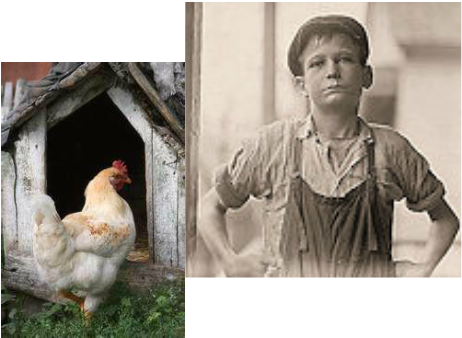
Ned told Sean that he had to pack in school at the age of twelve years to run his parents' homestead on his own. He was offered work on the farm in Crobally where his dad had worked, but he didn't fancy an early start before sunset and a 26-mile round trip daily to get there. Besides, he would have found it too hard to work at the farm where his dad had tragically died. Within no time at all, Ned had become a Jack-of-all-trades and master of none. Apart from looking after a few sheep and poultry, he sold a few eggs and earned his keep doing odd jobs wherever he could. During quiet periods, believing the widow to be poor, Ned would freely give his labour to her without expectation of any payment.
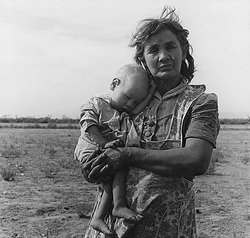
Sean was gradually building up a picture of Ned's growing relationship with the widow. In many ways, Ned and the widow shared some important similarities, just as he and Ned Hackett also had. It had been the widow who had given Ned his own first pair of horses and had therefore set him along the road as horse breeder, and Sean knew that it had been Ned who had sustained Sean's love of horses from his childhood years onwards. Having no mother since the age of twelve years, had provided Ned with a mother figure in the widow and equally, having Ned look after her, had provided the widow with the son she had never given birth to. Thus, fate, timing and circumstances, along with the close proximity of their homesteads, naturally led both into a mother-son bonding that neither seemed aware of.
Ned had only one treasured photograph of his mother holding him as a child and it still hurt him to gaze at it. He was unable to look at the photograph without seeing the poverty and stress of her harsh life written large across her face. Sean guessed that it had been such poverty experienced in his early childhood, which was why Ned had always placed great store upon financial security. He had no desire ever to see the lines of stress across his brow with the financial worry that his dearly departed mother had to cope with.
So ever since he was able to earn a few pennies, Ned Hackett had always worked. He considered no job beneath him and regarded all work that broke sweat to be honest work!
Ned had only one treasured photograph of his mother holding him as a child and it still hurt him to gaze at it. He was unable to look at the photograph without seeing the poverty and stress of her harsh life written large across her face. Sean guessed that it had been such poverty experienced in his early childhood, which was why Ned had always placed great store upon financial security. He had no desire ever to see the lines of stress across his brow with the financial worry that his dearly departed mother had to cope with.
So ever since he was able to earn a few pennies, Ned Hackett had always worked. He considered no job beneath him and regarded all work that broke sweat to be honest work!
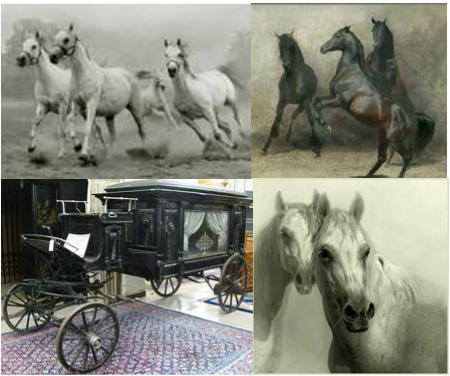
The Widow Friggs was buried in the parish church of 'Saint Patricks Catholic Church' two days before the wedding of Sean and Sheila took place. Ned made sure that no expense was spared in giving his old neighbour and substitute mother as good a send-off as he could.
The horse-drawn hearse was drawn by the best of Ned's thoroughbred stock. When it came to horses, the only ones that the citizens of Portlaw were accustomed to off the racetrack, were the ones that pulled ploughs, delivered milk and the old rag and bone man's cart.
The ones that pulled the widow's hearse however were eight of the finest Arabian horses ever to put hoof on the streets of Portlaw. There was a pair of whites out front, followed by three blacks and another three whites.
Prior to the widow's burial, both Sean and Sheila were given permission to take one item as a memento from the widow's belongings and possessions inside her cottage.
Sean smilingly said, "I'll take this old medal here," and Sheila said, "And I'll have this old tin mug with the initial 'A' stamped on it. It looks like it's been through the wars in its time and I've never quite seen another like it!"
"I have," Sean remarked smilingly, "only that had the letter 'E' inscribed across it!"
The horse-drawn hearse was drawn by the best of Ned's thoroughbred stock. When it came to horses, the only ones that the citizens of Portlaw were accustomed to off the racetrack, were the ones that pulled ploughs, delivered milk and the old rag and bone man's cart.
The ones that pulled the widow's hearse however were eight of the finest Arabian horses ever to put hoof on the streets of Portlaw. There was a pair of whites out front, followed by three blacks and another three whites.
Prior to the widow's burial, both Sean and Sheila were given permission to take one item as a memento from the widow's belongings and possessions inside her cottage.
Sean smilingly said, "I'll take this old medal here," and Sheila said, "And I'll have this old tin mug with the initial 'A' stamped on it. It looks like it's been through the wars in its time and I've never quite seen another like it!"
"I have," Sean remarked smilingly, "only that had the letter 'E' inscribed across it!"
|
Click here for the next page
|
Click here for the previous page
|
